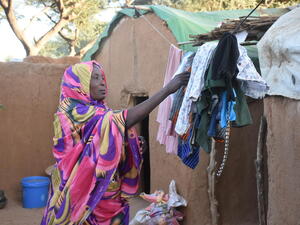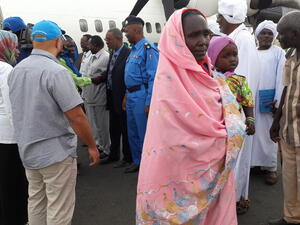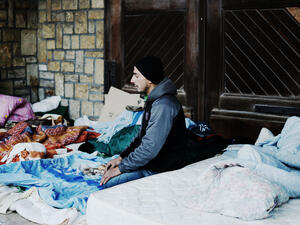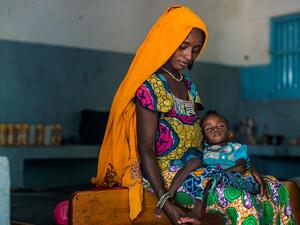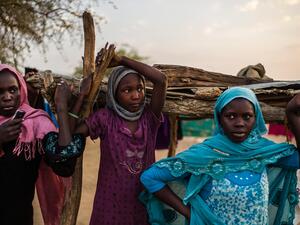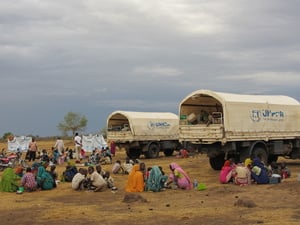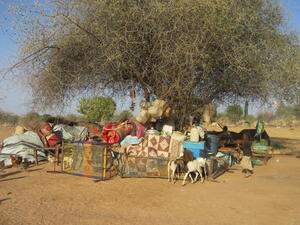Chad/Darfur: thousands remain frightened
Chad/Darfur: thousands remain frightened
No new attacks have been reported this week in volatile south-eastern Chad near the border with Sudan's Darfur region, but thousands of displaced people remain too frightened to return to their villages because armed groups are still moving in the region. The few displaced Chadians who have tried to return to salvage belongings have in some cases been shot and killed. UNHCR has been working with Chadian gendarmes to escort small numbers of displaced who want to go back to their villages to recover belongings from some of the 23 villages that have been destroyed during recent attacks south and east of Goz Beida town. Dozens of other villages have been abandoned in anticipation of attacks.
UNHCR now estimates that over 90,000 people are displaced in Eastern Chad, including at least 15,000 since the beginning of November in the south-east of the country near the Darfur border. Some 7,000 of them have gathered in the outskirts of Goz Beida, where they have sought shelter under trees or wherever they can get it. A distribution of relief supplies to these people that was scheduled for today was put on hold following reports of possible military activity around Goz Beida, according to our office in the town. We plan to move the displaced Chadians to a temporary site on the road to Kerfi, south of Goz Beida. The site is meant to be temporary until people can go back to their villages - which does not look very promising at this point. Many of the displaced Chadians told UNHCR that they will only go back if the government can secure the area.
Goz Beida town, which has 8,000 residents, also has some 15,000 refugees from Darfur in the UNHCR-run Djabal camp; 11,000 previously displaced Chadians in Gouroukoun camp; and now these additional 7,000 recently displaced Chadian.
Since the beginning of November, 5,000 people have also arrived at a site for the displaced in Habile, near Koukou Angarana, 45 km east of Goz Beida. More than 2,000 people have also reportedly been displaced recently in the Koloy area near Ade. The Koloy area was attacked on November 11 and 15.
The recent wave of attacks is also affecting Sudanese refugees from Darfur, who are now feeling increasingly insecure after fleeing their own country in 2003-04. In Goz Amir, a camp of 18,000 near Koukou Angarana, refugees fear working the fields that were allocated to them around the camp by Chadian authorities. Chadian gendarmes, who work with UNHCR to ensure camp security, have escorted some refugees to their fields so that they can harvest.
In all, there are 218,000 refugees from Darfur in 12 camps in eastern Chad. Chad is also hosting 46,000 refugees from the Central African Republic in the south.


